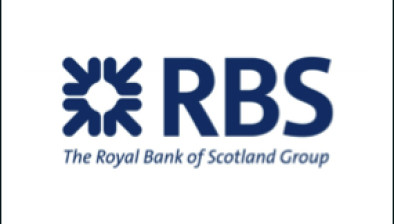RBS: Scotland’s hiring activity sees rebound despite UK downturn

November marked a significant turnaround in Scotland’s recruitment sector with a renewed rise in hiring activity, as revealed by the Royal Bank of Scotland Report on Jobs.
Mild expansions were signalled for both permanent placements and temp billings amid reports of successful recruitment campaigns and the commencement of projects at clients. In terms of labour supply, November data signalled divergent trends. While permanent staff availability fell due to increased hesitancy among workers to move roles given the uncertain economic climate, temp candidate availability expanded for the second month running, in part fuelled by redundancies. Meanwhile, overall pay pressures remained strong, with employers reportedly raising starting salaries and wages to attract suitable workers amid ongoing skills shortages.
Following three consecutive months of decline, Scottish recruiters registered a renewed rise in permanent staff appointments during November. The rate of growth was modest, but nevertheless contrasted with a steep downturn at the UK level. Anecdotal evidence linked the rise in permanent placements to a relative improvement in demand in some sectors and successful recruitment campaigns.
Temporary staff billings rose slightly across Scotland during November. Nonetheless, the upturn ended a 13-month period of decline. Surveyed recruiters noted that the commencement of new projects led to an increase in billings received from contract workers.
Meanwhile, a fresh contraction in temp billings was recorded across the UK as a whole.
The availability of candidates to fill permanent vacancies decreased further in November, thereby extending the current sequence of decline which began in February 2021. The respective seasonally adjusted index ticked up slightly from October but continued to signal a sharp drop in permanent candidate numbers. Growing hesitancy amongst workers to switch roles and a general lack of suitable candidates were linked to the latest reduction in availability.
However, permanent staff supply expanded further at the UK level, and at a rate that was the most pronounced since December 2020.
After rising for the first time in over two-and-a-half-years in October, Scottish recruiters recorded another expansion of temp candidate supply in November. Moreover, the rate of growth gathered pace and was strong overall. Redundancies were linked by some panel members to the latest expansion of short-term worker supply.
That said, the rate of growth in the availability of temp staff across Scotland was slower than the UK-wide trend.
A steep rise in permanent starting salaries was recorded across Scotland during November, thereby extending the current run of salary growth to three years. The rate of inflation accelerated after easing slightly in October and remained historically sharp overall. Recruiters noted that businesses were willing to pay higher salaries to attract the right talent amid ongoing skills shortages.
Starting salaries in Scotland increased at a quicker pace than that seen across the UK as a whole for the sixth month running.
Adjusted for seasonal factors, the Temporary Wages Index registered above the neutral 50.0 mark in November, to stretch the current period of temp pay growth to three years. The rate of increase softened from October, but remained sharp overall and was stronger than the series average. Scottish recruiters noted that the higher cost of living and competition for scarce staff had pushed up temp pay rates.
Temp wages also increased at the UK level, but at a weaker pace than seen in Scotland.
According to Scottish recruitment consultancies, demand for permanent staff fell for the fourth month running in November. The rate of contraction quickened fractionally from that seen in October and was the strongest in three years. Moreover, the downturn in demand for permanent workers in Scotland was steeper than that seen at the UK level.
All of the eight monitored employment categories bar nursing/medical/care registered a fall in vacancies. Executive & professional recorded the strongest reduction overall.
A fourth consecutive monthly deterioration in demand for temporary staff was recorded across Scotland during November. The pace of contraction was sharp despite easing since October. Meanwhile, temp vacancies expanded modestly across the UK as a whole.
At the sector level, executive & professional recorded the fastest reduction in temp vacancies, followed by secretarial & clerical.
Sebastian Burnside, chief economist at Royal Bank of Scotland, commented: “Recruitment activity across Scotland improved slightly in November. Successful recruitment drives and the commencement of projects at clients supported increases in both permanent placements and temp billings during November.
“The fresh and broad-based upturn in hiring contrasted with a downturn across the UK as whole, with permanent staff recruitment particularly weak at the UK level. It is difficult to know whether the increases can be sustained in December and into the coming year, however, given the fall in overall vacancies.
“In terms of pay, a lack of suitably-skilled candidates often led employers to bump up their pay offers to attract the right talent, making it a good time for job seekers if they wish to secure a better paid role.”










